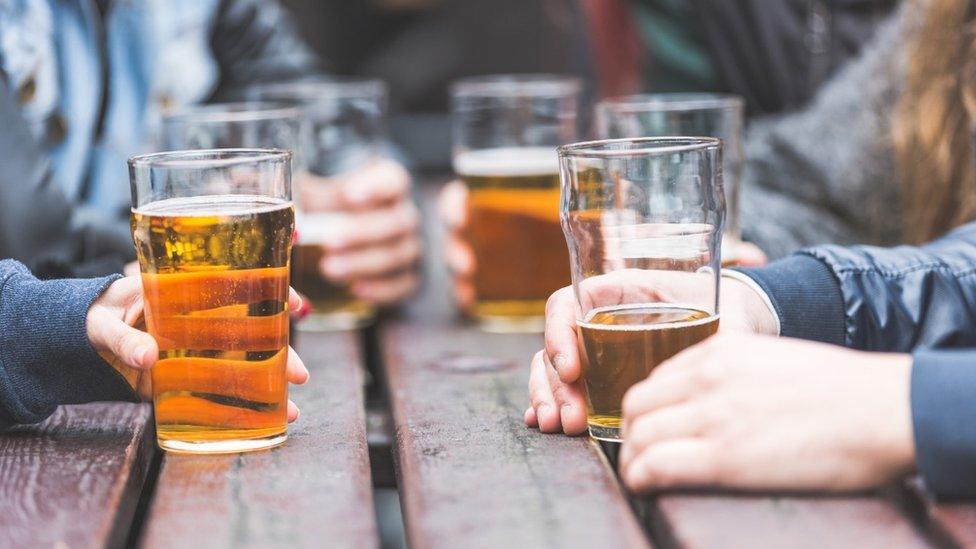Women's binge drinking given more coverage than men's, says study
- Published

Women who binge drink are portrayed more negatively by the media than men who do the same thing, according to new research.
Glasgow University and Glasgow Caledonian University published a study in BMJ Open, external about how the media reports drinking habits.
More than 300 articles published in UK national newspapers were analysed.
The findings suggested women's binge drinking was given more coverage, despite men drinking more in reality.
The researchers looked at 308 articles published over two years in seven newspapers.
Haggard and vulnerable
They found that as well as misrepresenting differences in the amount that each gender drinks, the articles depicted women's and men's binge drinking in very different ways.
The academics said the articles typically linked women's binge drinking to impacts on personal appearance and presented them as haggard, vulnerable, socially transgressive and a burden to their male drinking companions.

They suggested these portrayals could give readers an inaccurate understanding of what binge drinking is and what its effects are, and how to lower their own health risks.
Chris Patterson, from the public health sciences unit at the University of Glasgow, said: "Media coverage of women's binge drinking isn't just about health or public disorder; it also performs a moralising, paternalistic role, reflecting broader social expectations about women's public behaviour.
"As well as unfairly stigmatising women, media coverage of binge drinking is problematic in terms of communication information about a serious health issue to the public.
"Evidence suggests that the public view binge drinking as a masculine activity and statistics tell us that men do drink more than women in reality, but the media are depicting a different story."
'Disproportionate focus'
He added: "It's vital to clearly define unhealthy behaviours so that we can address them. What is binge drinking, and why is it a problem? If the media feel a responsibility to inform the public, they might seek to help us understand what constitutes harmful drinking, and what the risks of it are, without promoting harmful stereotypes that get in the way of evidence-based facts."
Dr Carol Emslie, from the school of health and life sciences at Glasgow Caledonian University, said "In the UK, men still drink more than women and are more likely to die from alcohol-related causes.
"However, the media's disproportionate focus on women's drinking, including the headlines and images used, may lead the public to think that it is primarily young females who are the problem drinkers.
"Alcohol is more freely available, more affordable and more heavily marketed today than it has been for decades, and excessive drinking affects all sections of the population."